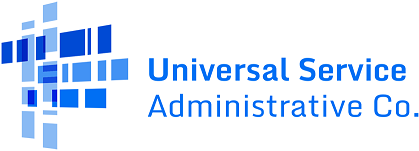Letter of Agency (LOA)
A Letter of Agency (LOA) establishes that applicant entities have authorized the person identified in the letter to act on their behalf. An LOA is evidence that establishes the relationship between the authorized person executing any program forms, and the entities featured on those forms.
The person certifying the FCC Form 471 affirms that he or she is the person authorized to submit and certify to the accuracy of the application.
This person must be authorized to represent any and all of the entities for which discounts are sought in the funding requests featured on the application. During its review of the FCC Form 471, USAC may require copies of the documentation that confirms this person’s authorization to represent all of the entities featured on the FCC Form 471.
Consortium Letters of Agency
A consortium LOA is most commonly signed by consortium members and kept on file by their consortium leader to verify their knowledge of their membership and participation in the consortium. Consortium members and agents can also use a project agreement, a contract, a letter agreement, or other similar document to establish this authorization.
The consortium LOA must be signed and dated on or before the date the FCC Form 471 was certified.
The document establishing the above authorization must contain all of the following:
- The name of the person filing the application (the consortium leader)
- The name of the person authorizing the filing of the application (the entity who will receive discounted services, such as a consortium member)
- The specific timeframe the LOA or authorizing document covers (for example, Funding Year (FY) 2018)
- The signature, signature date, and title of an official who is an employee of the entity who is authorizing the filing of the application (the entity who will receive discounted services, such as a consortium member); and
- A description of type of services covered by the LOA or authorizing document (the description of services can be as general as “all Schools and Libraries (E-Rate) program eligible services” or it can be more restrictive).
The timeframes of these authorizations cannot be open-ended, such as “until terminated by either party.”
In certain situations, other documentation may be accepted as proof of authorization. For example, for consortium applications, the consortium lead member must either collect LOAs from each consortium member or be able to provide some other proof that each consortium member knew it was represented on the application.
Consortia which have a statutory or regulatory basis and mandatory participation by schools or libraries must be able to provide documentation supporting this certification, including copies of the relevant state statute or regulation.
Refer to this sample Letter of Agency for further guidance.
